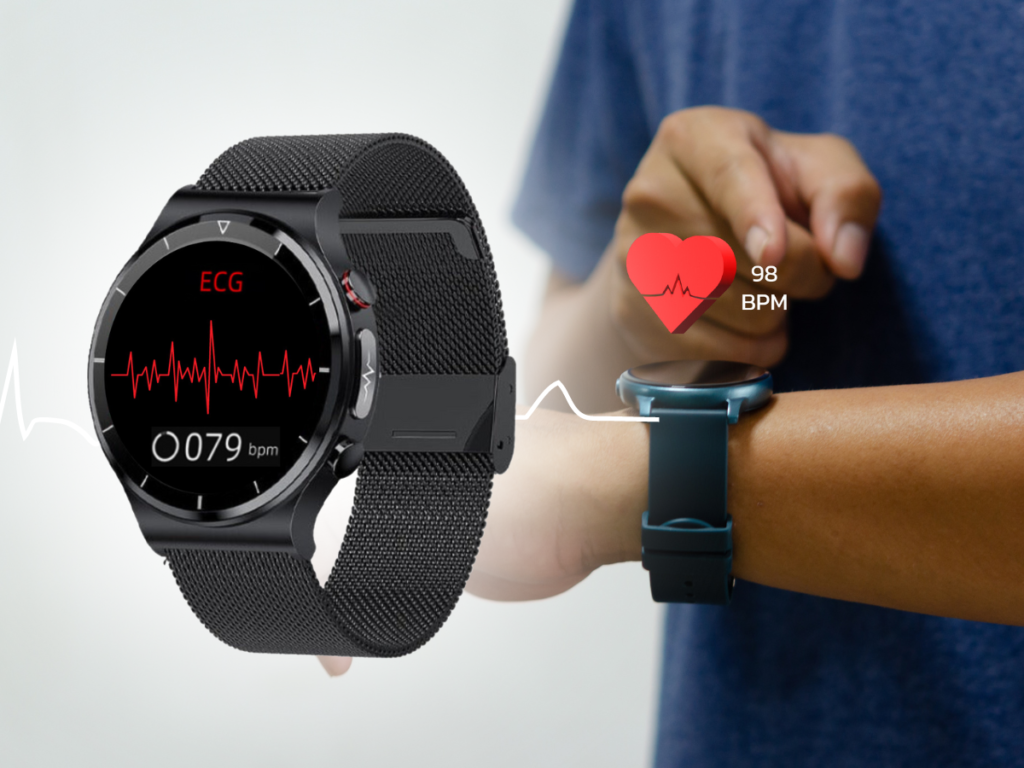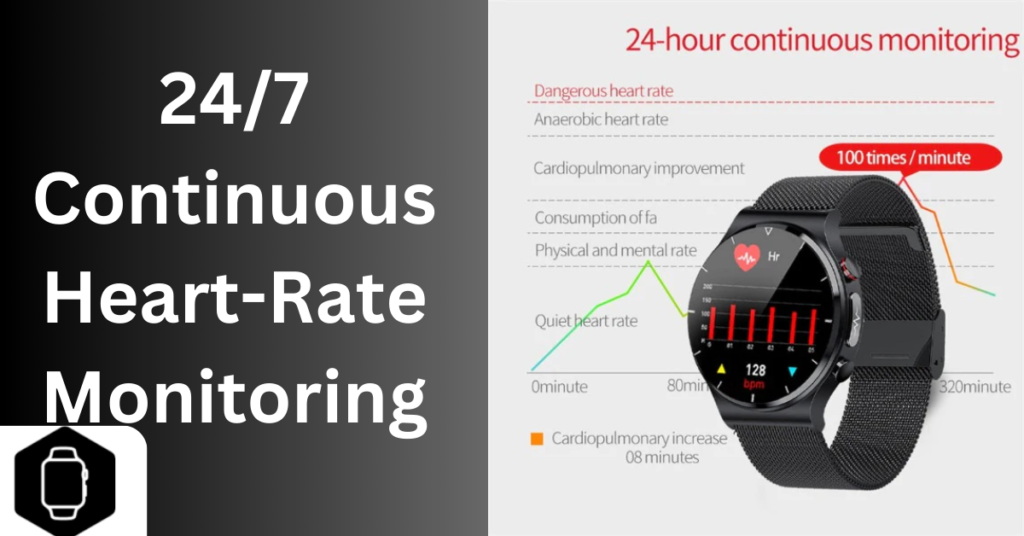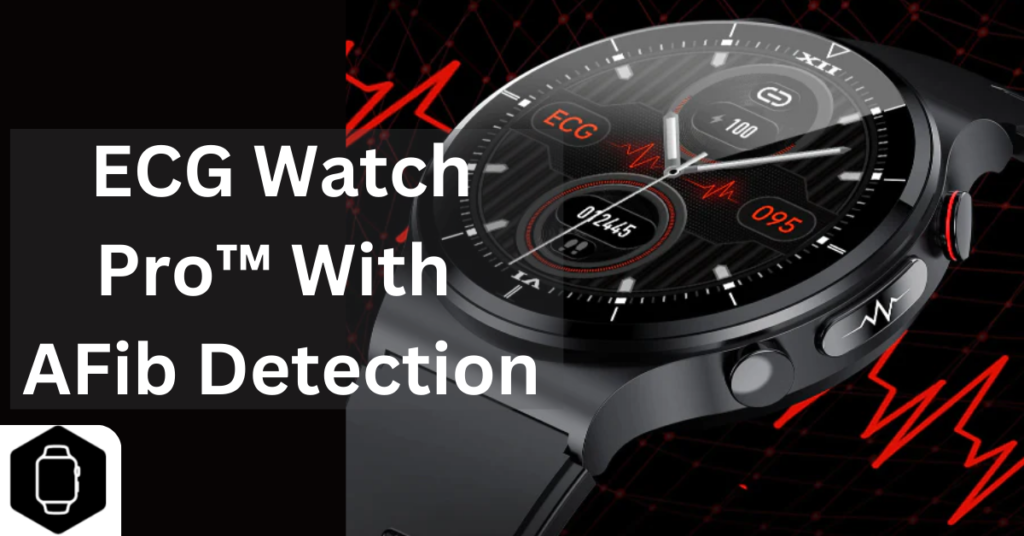
In the digital health, wearable technology has taken significant strides in monitoring and improving our well-being. Smartwatches, in particular, have become more than just fashion accessories; they now come equipped with advanced health tracking features, including the ability to perform electrocardiograms (ECGs).
But the question remains: can a smartwatch with ECG capability truly detect and warn you about an irregular heartbeat, and what are the implications for our health?
As we delve deeper into this technology, we discover that smartwatches with ECG feature indeed have an important role to play in monitoring and even screening for certain heart conditions.
One such condition is atrial fibrillation (AFib), where the heart beats in an abnormal and irregular rhythm, a prevalent type of arrhythmia, which, as explained by Dr. Maged Amine, an interventional cardiologist at Houston Methodist, can often develop silently and without noticeable symptoms.
People who have Atrial Fibrillation can be benefit from smartwatch which ECG feature because they can keep an eye on their heart rhythm and heart rate with asking a difference in the field of heart health and why they are gaining recognition as valuable tools for early detection and ongoing heart rate monitoring.
Understanding Electrocardiograms access . Would it really be able to detect afib and monitor your heart or is it too good to be true ? So, let’s explore the technology behind ECG-capable smartwatches and examine how well they can detect heart irregularities in the real world.
Understanding The Electrocardiograms (ECGs)
An electrocardiogram (ECG) is a medical test used to measure and record the electrical activity of the heart. Its primary function in the context of detecting atrial fibrillation (AFib) is to help identify irregularities in the heart’s rhythm.
The ECG process involves placing electrodes on various parts of the body, such as the chest and limbs. These electrodes capture the electrical signals generated by the heart as it beats. This data is then transmitted to a computer, where it is analyzed by healthcare professionals.
In the atrial fibrillation detection, an ECG serves the essential role of revealing whether a person’s heart rhythm is normal or irregular. AFib is characterized by rapid and irregular electrical impulses in the heart’s upper chambers (atria), leading to an irregular heartbeat. When an ECG shows irregularities or abnormalities rhythm in the heart’s electrical patterns, it can be a key indicator that a person may have AFib , Heart Palpitations or another cardiac arrhythmia such as .
In summary, an ECG is a diagnostic tool that plays a crucial role in identifying AFib by detecting deviations from a regular rhythm through the analysis of electrical signals produced by the heart during its beating cycles.

How Do ECG Smartwatch Work?
Traditional ECG tests at clinics use a 12-lead ECG as the standard. Recent advancements in technology have allowed smartwatch manufacturers to incorporate ECG technology capabilities into their smartwatch technology. This involves the integration of electrodes into the watch’s hardware, typically through sensor-laden wristbands or built-in metal contacts on the watch’s back. Users can initiate ECG recordings through dedicated apps on the smartwatch or some watches even can connect with some ECG apps, which then display the results in real-time or store them for later review.
These ECG smartwatches have become a valuable tool for individuals seeking to stay informed about their heart health in real time and use as their personal ECG . As the technology continue to evolve, we can anticipate even more sophisticated and accurate health-monitoring features in these wearable devices.
The Promise of ECG-Capable Smartwatches
The introduction of ECG smartwatches was met with great anticipation, as they promised several benefits to monitor you heart :
Early Detection: Smartwatches equipped with ECG functionality could potentially detect irregular heartbeats early, allowing users to seek medical attention promptly.
Continuous Monitoring: Unlike traditional ECGs that provide a snapshot of heart activity during a clinic visit, smartwatches offer the possibility of continuous heart monitoring, providing a more comprehensive picture of heart health.
Improved Accessibility: ECG smartwatches make cardiac monitoring more accessible to individuals who may not regularly visit healthcare professionals or who have a higher risk of heart issues.
What are the Drawback for Patients using ECGs Smartwatches in reality ?
While the promise of ECG smartwatches is exciting, it’s essential to consider their real-world effectiveness and limitations :
Accuracy in ECG monitoring: Smartwatch ECGs are generally accurate in detecting irregular heart rhythms like AFib, but it’s important to note that while they offer valuable insights, they may have limitations in terms of diagnostic accuracy. False positives and false negatives can occur. Therefore, users should not solely rely on their smartwatches for medical diagnosis.
Limited Data: Smartwatch ECGs provide a limited amount of data compared to clinical-grade ECGs. Because a wearable device is a single-lead ECG, it provides less information about the heart’s electrical activity than a 12-lead ECG. This means that certain heart conditions may not be able detect cardiac with a smartwatch ECG.
User Skill: Proper electrode placement and user technique can impact the diagnostic accuracy of smartwatches ECGs. Users must follow guidelines provided by the manufacturer for the best results.
User Awareness: Smartwatches can alert users to irregular heartbeats, but users must take these alerts seriously and consult a healthcare professional for further evaluation.
FDA Approval: Not all smartwatches with ECG capabilities are FDA-approved for medical use. It’s essential to verify a watch’s certification for diagnostic purposes.
As of September 2023 , the time we publish this article , there are a few smartwatches options that people can buy and use. These includes Apple watch 8 from apple watch series, Samsung Galaxy Watch 6, Fitbit Sense, Fitbit Charge 5 and Viatility Watches which are available and safe for customers to use.

So, Can ECG SMARTWATCHES Really Detect Irregular Heart rhythm and Help You with Your Heart Health?
In general, the heart specialists at the QCG Atrial Fibrillation Institute all agree that the options approved by the TGA (Thereeutic Goods Administrations) are quite effective and useful. They provide valuable data that can be discussed with Patients.
“A lot of my patients just send their ECG recording to me, straight from their watch, or bring it with them when they come in to their appointment, and we have a look at the readings together. It is important that we review it together, and confirm we know what we are dealing with and that everything is as it should be, or if we need to keep recording,” explained Dr Hayes.
The future of ECG Smartwatches to Detect Atrial Fibrillation(Afib) and Other Cardiac Issues!
ECG smartwatches represent a significant step forward in personal health monitoring. They offer the potential for early detection of irregular heart rhythms and increased accessibility to cardiac monitoring just by wearing a smartwatch. However, it’s crucial to approach these devices with a balanced perspective. While they can provide valuable insights, they are not a substitute for medical grade ECG device or professional medical advice.
If you are feeling unwell with symptoms like weakness, less stamina, tiredness, dizziness, shortness of breath, irregular heartbeats or chest pain, it is crucial to talk to a doctor, whether or not you wear a smartwatch.
Users should use ECG smartwatches as tools to enhance their awareness of their heart health, prompting them to seek medical guidance when necessary. As technology continues to evolve, these devices may become even more reliable and accurate in the detection of irregular heartbeats, further improving their role in preventive healthcare. Nonetheless, personal responsibility and informed healthcare decisions remain paramount in ensuring our well-being in the digital age.
As we embrace these advancements, let’s remember that our health is a partnership between technology and our own well-informed choices, ensuring a brighter and healthier future for us all. If you’re interested in exploring ECG smartwatches further, simply click on this link: ECG Watch.

